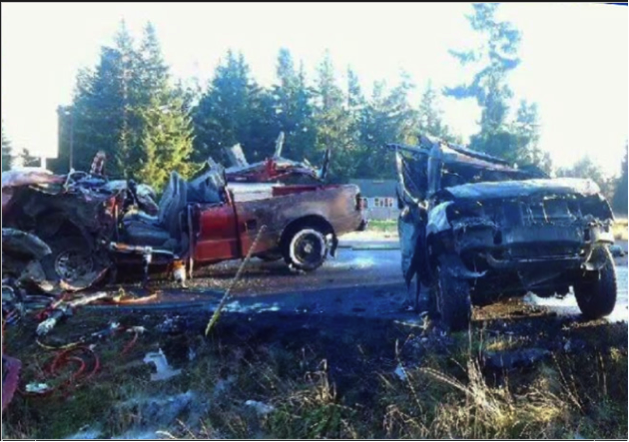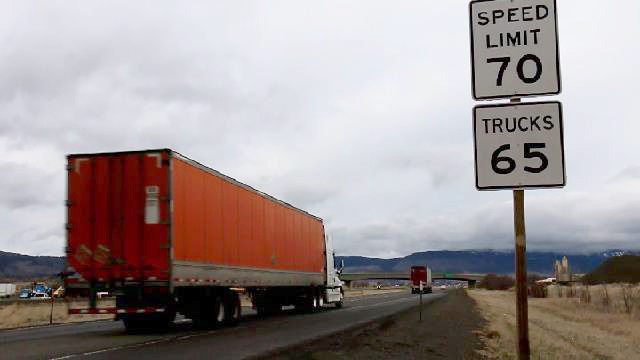For more than 30 years, I have represented those injured or the families of those killed by preventable crashes on our highways. Many of these claims have involved semi-trucks and trucking companies.
I read an article in Transport Topics expressing the importance of trucking. This op-ed was written by Garner Berry, a lawyer whose law firm defends these trucking companies and truck drivers.
Opinion: Share the Message of Trucking’s Importance
Looking at trucking through rose-colored glasses
Mr. Berry loves driving. He thought about being a truck driver. He points out that the trucking industry is invaluable to the American economy.
And he laments, “The public does not see trucking through the same rosy glasses that [he] does.”
Perhaps he’s right.
All too often, I am contacted by families whose members have suffered serious injuries or been killed by preventable crashes caused by a truck driver who lacked proper training, or was speeding, or distracted.
Recently, my law firm represented a teenager. This kid was driving home from a high school sports practice. He signaled his left turn. He stopped, waiting for an opening in traffic.
And then he was hit from behind by a truck driver who was just not paying attention.
The truck driver’s failures resulted in a major crash, and very serious injuries to both my client and another driver.

The truck driver could not explain his failure.
Nothing blocked his visibility.
He was on a roadway where folks commonly stopped to take left turns.
The above picture tells you enough about this story. It’s a difficult image to see through rose-colored glasses.
A (reasonable) fear of semi-trucks
Mr. Berry claims that the public doesn’t share his love because they are “inundated with stories that the trucking industry is bad and the public should fear it.”

First of all, no one needs to tell the public to fear the trucking industry.
That fear often comes from the experience of being passed by a 70,000-pound tractor-trailer, buzzing down the highway at 80 mph.
Secondly, it’s normal to feel fear when you see images of terrible crashes—like my client above.
The solution to these fears is not to stop telling the stories of truck crash victims: it is to stop the truck crashes.
Just like passenger vehicles, big rigs are involved in crashes each day. People may be more aware of these crashes than of collisions between two passenger vehicles. That’s because commercial trucks are:
- Significantly larger than most motor vehicles;
- More visible than small cars;
- Operated by professional drivers; and,
- Are run by companies that may value profit over safety.
However, wisdom and experience teach us that one size does not fit all.
Not all trucking companies are bad.
Not all trucks should be feared.
But the statistics must be considered when looking at the industry.
Facts:
- In 2014, there were 3,649 fatal crashes involving large trucks and buses. (NHTSA)
- The number of people who died in large truck crashes was 22% higher in 2015 than in 2009, when it was lower than at any year since the collection of fatal crash data began in 1975. (IIHS)
- More than 1 in 10 motor vehicle crash deaths in 2015 involved large trucks. (IIHS)
Setting training and safety standards
In his article, Mr. Berry posits that the public is not told: “Truck drivers are professionals trained in safety beyond what the casual driver ever will be.”
I disagree.
It’s been my experience that the public understands very well that professional truck drivers are trained more thoroughly than other drivers—as they should be.
We agree: commercial truck drivers operate large and potentially dangerous pieces of equipment. Therefore, they are held to a higher standard of care than regular motorists.
I believe that is one of the reasons that people get angry when these professionals:
- Drive dangerously;
- Flout the rules of the road; and
- Fail to adhere to the federal regulations set by the Federal Motor Carriers Safety Administration (FMCSA).
The primary mission of FMCSA:
reduce crashes, injuries and fatalities
involving large trucks and buses.
As you know, I represent families who’ve experienced serious injury or death in truck accidents crashes. Mr. Berry defends trucking companies. (Most truck crashes are not actually “accidents”: they are caused by bad driving decisions, dangerous roads, or other predictable factors).
But there are some fundamental points that we could agree upon.
 We agree: commercial trucking is important to our economy and way of life.
We agree: commercial trucking is important to our economy and way of life.
We could probably agree that properly designed and well-maintained roads are important.
And that the safety of those roads is important.
We could agree that well-trained truckers and law-abiding trucking companies are important part of that safety.
But we do disagree on one fundamental point.
Mr. Berry believes that revising the public perception of safety in the trucking industry should be a priority.
I strongly believe that safety itself should be at the forefront of the industry.

Leave A Comment